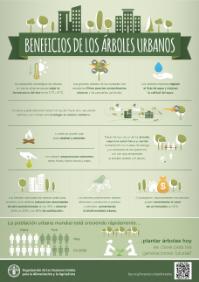Focal point
Location
The Food and Agriculture Organization of the United Nations leads international efforts to defeat hunger. Serving both developed and developing countries, FAO acts as a neutral forum where all nations meet as equals to negotiate agreements and debate policy. FAO is also a source of knowledge and information. We help developing countries and countries in transition modernize and improve agriculture, forestry and fisheries practices and ensure good nutrition for all. Since our founding in 1945, we have focused special attention on developing rural areas, home to 70 percent of the world's poor and hungry people.
Members:
Resources
Displaying 596 - 600 of 5074Regional Strategy and Action Plan for Forest and Landscape Restoration in Asia-Pacific
Degradation of forests can have severe negative local impacts and far-reaching consequences, including soil erosion, loss of biodiversity, greenhouse gas emissions, dust storms, diminished livelihood opportunities and reduced yields of forest products and services. Reversing the adverse conditions requires urgent and scaled-up action, through scientific and holistic landscape-level restoration approaches, balancing both socio-economic and environmental goals and the diverse needs of various sectors and stakeholders in the landscape.











